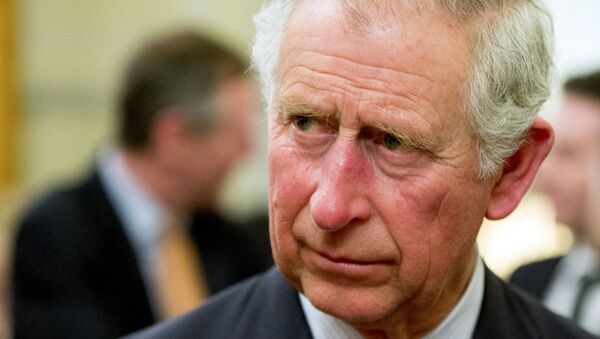The Supreme Court decision comes after a nine-year battle by journalists and freedom of information campaigners who say the British public has the right to know the extent of the Prince's lobbying of ministers, despite the fact that — as the next sovereign — his position is supposed to be impartial.
The UK Attorney General had attempted to withhold publication of the letters, but the Supreme Court has ruled that he had no right to withhold them under Freedom of Information laws.
View Lord Neuberger’s judgment summary in Evans v Attorney General (Prince of Wales’ letters) http://t.co/9GNNokIyjI
— UK Supreme Court (@UKSupremeCourt) March 26, 2015
A former Environment Secretary, Michael Meacher, is on record as saying that he and Charles had worked together to persuade Prime Minister Tony Blair to push green energy and block the use of genetically modified crops. "We would consort together quietly in order to try and ensure that we increased our influence within government," he said.
"There were always tensions within government. And I knew that he largely agreed with me and he knew that I largely agreed with him.
"I know he spoke to Tony Blair, obviously he would regularly speak to the Prime Minister, and I'm sure he told him his views, so we were together in trying to persuade Tony Blair to change course."
Fishing and Farming Prince
He said it was possible that there was a constitutional problem in that a member of the Royal Family was advocating a political opinion.
As someone who has seen a couple of the Prince Charles letters, it will certainly be of high public interest to have them out in the open.
— Andrew Neilson (@neilsonandrew) March 26, 2015
The Supreme Court ruling follows the release of documents showing that the then fisheries minister, Huw Irranca-Davies, wrote to the prince's private secretary in 2008 enclosing copies of the draft Marine and Coastal Access bill, drawing the prince's attention to clauses which would require the prince's consent.
The prince replied that "the Prince of Wales is content with the bill", in an archaic formula that supposes that he retains the powers to over-rule sections of legislation.
Supreme Court to Downing Street pic.twitter.com/V3qRIgdn0V
— alan rusbridger (@arusbridger) March 26, 2015
The heir to the throne, who owns the Duchy of Cornwall, has major interests in agriculture holdings in Devon, with other large holdings in Cornwall, Herefordshire, Somerset and Wales.
The Supreme Court have ordered that Prince Charles' letters are to be published. Oh well. If you insist. pic.twitter.com/ztakhXswH0
— Elizabeth Windsor (@Queen_UK) March 26, 2015
In 2009, Prince Charles lobbied the Prime Minister of Qatar to withdraw a £3 billion development scheme for the Chelsea Barracks site in central London. Describing the Qatari royal family-backed scheme for a concrete, glass and steel development as "brutalist" and a "gigantic experiment with the very soul of our capital city".
He wrote:
"I am so sorry to have to write to you on this subject, and thus be so interfering, but it is a site of great [underlined] importance in London and therefore deserves something that is appropriate to its context and worthy of its position next to the Royal Hospital."
Three months later, Qatari Diar, a development company owned by the Gulf state's royal family, withdrew its application.


